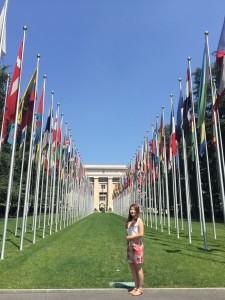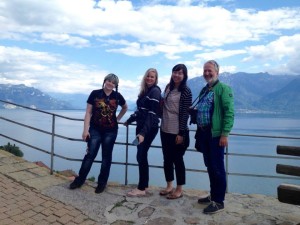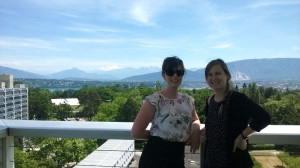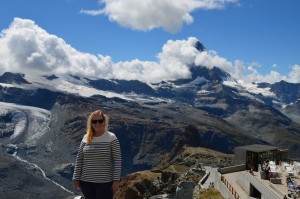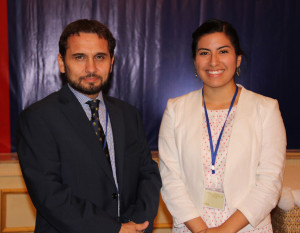Na Ra Kim is working on dual master’s degrees, an M.A. in International Relations and an M.S. in Public Relations, as a Public Diplomacy student at Syracuse University. She interned at UNICEF in Geneva, Switzerland last summer.
I have always believed protecting children’s rights is the most important task for civil society to be aware of and act on, and my interest in children and their rights was bolstered while studying in the Public Diplomacy program at the Maxwell School.
I interned at the United Nations Children’s Fund (UNICEF) in Geneva, Switzerland from May to August 2015. I worked under the Knowledge Management (KM) Specialist and Corporate Social Responsibility (CSR) team within the Private Sector Engagement Section in the UNICEF Private Fundraising and Partnership division.
As a Private Sector Engagement Officer, I provided ongoing technical support for knowledge management information on issues related to UNICEF’s private sector engagement. This included uploading content to their intranet site/Internet website, developing templates for collecting information, and drafting case studies and other related materials for newsletters. My role also included participating in conference calls, creating presentation materials and press releases, and supporting data collection and statistical evaluation. Additionally, I researched CSR in different industries (e.g., Food and Beverage, Garment, ICT, Extractives) and the way in which those sectors affect children’s rights and youth development. I also took notes at the Human Rights Council 29th session for the CSR team.
From this internship, I learned about development policy, advocacy, and communication strategy in general, but I mostly realized how important it is to share information and documents within the organization and how it affects the targeting of civil society and leads to its participation.
I would like to add it was a great chance to work with UNICEF staff members and other interns. I was fortunate to work with incredibly nice and sincere supervisors who truly wanted me to learn from my internship, as well as with interns who all encouraged each other to accomplish our goals. Also, it was an honor to meet incredible UN people, ambassadors, representatives and spokespeople during conferences and events. It was a turning point of my life and I really want to recommend this opportunity to everyone in Maxwell.
In addition to my internship, Professor Schleiffer’s lectures also inspired me a lot. He helped me understand the UN system and the history of international organizations in Geneva. Presentations from speakers who currently work at the UN, International Organizations and the Permanent Mission, were the part of his class that I definitely loved the most.
No doubts, Geneva is the most beautiful city to work, travel and dream in. You will find yourself enjoying cheese, chocolate and wine around the nearby lake after work. That’s Geneva.
